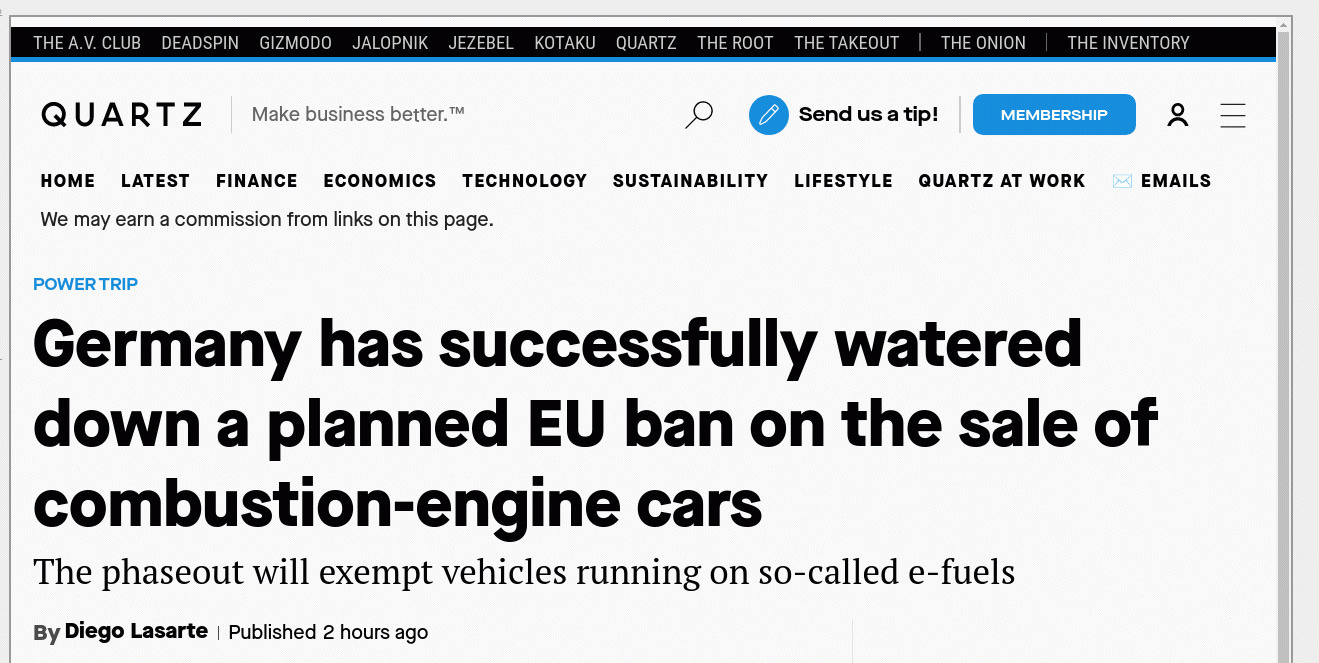Electric Vehicle Mandates Face Renewed Opposition From Car Dealers

Table of Contents
Financial Concerns and Infrastructure Readiness
The transition to an electric vehicle-centric market presents substantial financial hurdles for car dealerships. These challenges stem from both high upfront investment costs and the current inadequacy of supporting infrastructure.
High upfront investment costs for dealerships
Dealerships face significant capital expenditures to adapt to the EV market. Successfully servicing electric vehicles requires a considerable investment in new infrastructure and employee training, creating a considerable financial burden.
- High cost of charging station installation: Installing and maintaining fast-charging stations is expensive, requiring significant upfront investment and ongoing operational costs. This is particularly challenging for smaller dealerships with limited resources.
- Need for specialized EV mechanic training: Electric vehicles require specialized tools and expertise for repair and maintenance, which necessitate substantial investment in training for existing mechanics and potentially hiring new, specialized technicians. This adds to the operational costs of dealerships.
- Reduced service revenue due to lower maintenance needs of EVs: Electric vehicles have fewer moving parts than internal combustion engine (ICE) vehicles, resulting in less frequent and less complex maintenance needs. This translates to reduced service revenue for dealerships, impacting their profitability.
- Lack of profitability on EV sales compared to traditional vehicles in many regions: In many markets, the profit margins on EV sales are currently lower than those on traditional gasoline-powered vehicles. This makes the transition even more financially challenging for dealerships.
- Uncertainty around the long-term return on investment in EV infrastructure: Dealerships face uncertainty regarding the long-term return on their investment in EV infrastructure, especially given the rapid pace of technological advancements in the EV sector.
Insufficient charging infrastructure
The lack of a robust public charging network is a major obstacle to widespread EV adoption and a significant concern for dealerships. This infrastructure deficit creates range anxiety among potential EV buyers, hindering sales.
- Uneven distribution of charging stations across regions: The availability of charging stations varies significantly across geographical areas, with many rural and underserved communities lacking adequate infrastructure.
- Long wait times at charging stations: In areas with existing charging stations, wait times can be excessive, further deterring potential EV buyers and highlighting the need for increased charging infrastructure.
- Reliability and speed of charging remain issues: The reliability and speed of public charging stations are also concerns. Malfunctioning chargers and slow charging speeds can frustrate EV drivers and negatively impact the perception of EV ownership.
- Government support for charging infrastructure needs to accelerate to alleviate dealer concerns: Increased government investment in nationwide charging infrastructure is crucial to alleviate concerns and encourage wider EV adoption.
Challenges in Sales and Consumer Perception
Beyond the financial aspects, dealerships face significant challenges related to sales and consumer perception of electric vehicles.
Consumer reluctance and education
Many consumers remain hesitant about adopting EVs due to several factors, creating a hurdle for dealerships trying to sell them. Addressing these concerns requires effective customer education and support.
- Misconceptions about EV performance and charging: Many consumers harbor misconceptions about EV performance, range, and charging times. Dealerships need to effectively address these misconceptions through comprehensive customer education.
- Concerns about battery life and replacement costs: Concerns about battery lifespan and the high cost of battery replacement are significant barriers to EV adoption. Dealerships need clear and concise information to reassure potential buyers.
- Lack of awareness about available government incentives: Many consumers are unaware of the various government incentives, rebates, and tax credits available for EV purchases. Dealerships play a vital role in informing customers about these programs.
Training and expertise gaps
The successful integration of EVs into dealerships demands a comprehensive training program for both sales staff and mechanics.
- Need for comprehensive training on EV technology: Sales staff requires training to effectively explain the benefits and features of EVs to potential buyers, addressing common concerns and misconceptions.
- Difficulty in recruiting and retaining EV-specialized technicians: The specialized skillset required to maintain and repair EVs creates a challenge in recruiting and retaining qualified technicians.
- High cost of training programs: Developing and implementing comprehensive training programs requires substantial investment from dealerships, adding to their overall costs.
Impact of Electric Vehicle Mandates on Dealership Viability
The rapid implementation of electric vehicle mandates without adequate support for dealerships poses significant risks to their viability.
Potential job losses and business closures
A poorly managed transition to electric vehicles could lead to job losses within dealerships and even business closures.
- Loss of revenue from reduced service work: The reduced maintenance needs of EVs translate to decreased service revenue, impacting the financial health of dealerships.
- Layoffs of staff due to decreased demand for ICE vehicles: As EV adoption increases, the demand for internal combustion engine (ICE) vehicles will likely decline, potentially leading to layoffs within dealerships.
- Potential business failure for dealerships unprepared for the transition: Dealerships lacking resources and support to adapt to the EV market face the risk of financial difficulties and potential business failure.
Need for government support and collaboration
Government support and collaboration are crucial to ensure a smooth and equitable transition to an EV-dominated market.
- Funding for dealership training and infrastructure upgrades: Government funding for dealership training programs and infrastructure improvements, including charging station installation, is vital.
- Tax credits and incentives for EV sales: Tax credits and incentives can help offset the financial burdens on dealerships and stimulate EV sales.
- Extended timelines for mandate implementation: A phased approach to implementing electric vehicle mandates, allowing dealerships sufficient time to adapt, is crucial to minimizing disruption and negative impacts.
Conclusion
The renewed opposition to electric vehicle mandates from car dealerships underscores the complex challenges inherent in a rapid shift to electric mobility. Addressing the financial concerns of dealerships, improving charging infrastructure, and providing adequate support for training and education are essential for a successful transition. Ignoring these concerns risks jeopardizing the viability of dealerships and potentially hindering the broader adoption of electric vehicles. A collaborative approach between governments and the automotive industry, including a phased implementation of electric vehicle mandates, is necessary to ensure a smooth and sustainable transition to a cleaner transportation future. Open communication and proactive strategies to address these concerns surrounding electric vehicle mandates are crucial for a successful nationwide transition.

Featured Posts
-
 Asylum Volunteer Recognition Fabers 100 Support For Royal Distinctions
May 11, 2025
Asylum Volunteer Recognition Fabers 100 Support For Royal Distinctions
May 11, 2025 -
 Payton Pritchard Sixth Man Of The Year
May 11, 2025
Payton Pritchard Sixth Man Of The Year
May 11, 2025 -
 New Baseball Exhibit Opens At East Tennessee History Center Preceding Covenant Health Park Debut
May 11, 2025
New Baseball Exhibit Opens At East Tennessee History Center Preceding Covenant Health Park Debut
May 11, 2025 -
 John Wick 5 Confirmed Lionsgate On Keanu Reeves Fate
May 11, 2025
John Wick 5 Confirmed Lionsgate On Keanu Reeves Fate
May 11, 2025 -
 Is The Mtv Movie And Tv Awards Show Over 2025 Cancellation Explained
May 11, 2025
Is The Mtv Movie And Tv Awards Show Over 2025 Cancellation Explained
May 11, 2025
